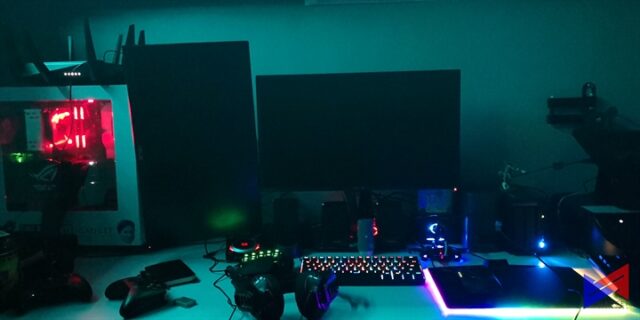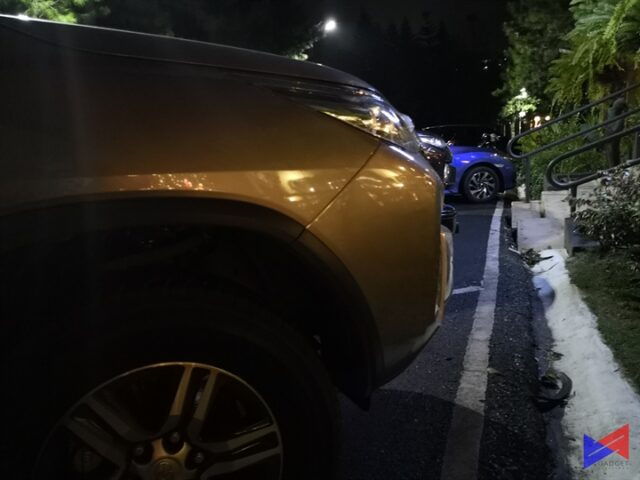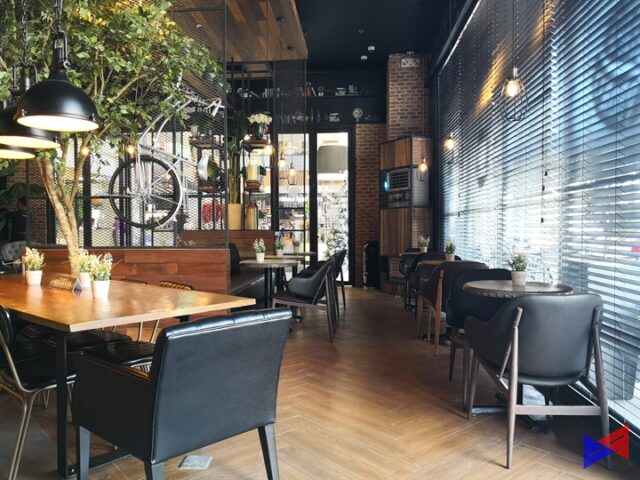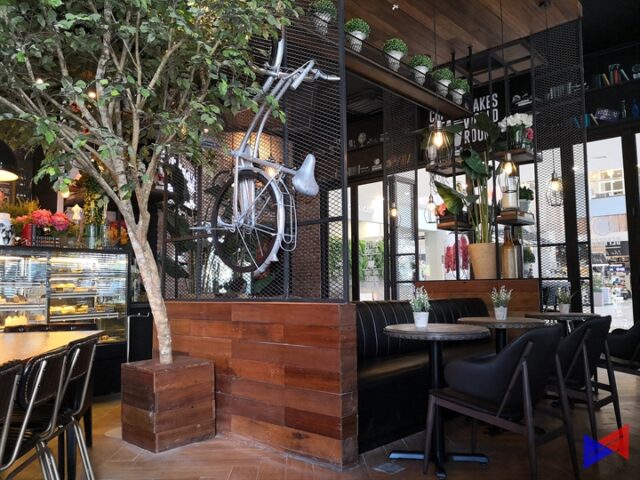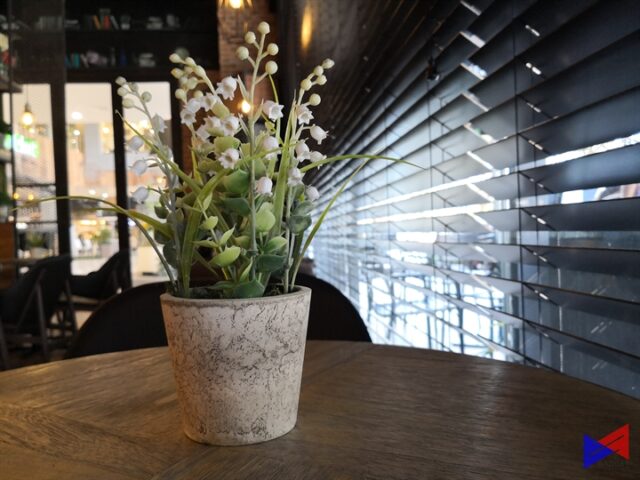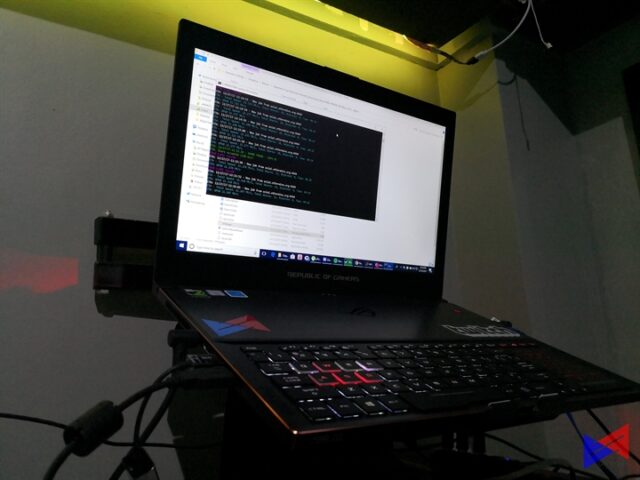It’s all about AI for Huawei last 2017; and looking at the way things are unfolding for the Chinese brand, it seems that it’s going to be one their major focus this 2018.
Huawei Mate 10 is one of the best phones we reviewed in 2017. It was so good we thought that it deserved to be given an award. We’ve been vocal about our preference to Mate 10 than the Mate 10 Pro, but will we have a change of heart after being able to use the latter for 2 weeks? Here’s our full review.
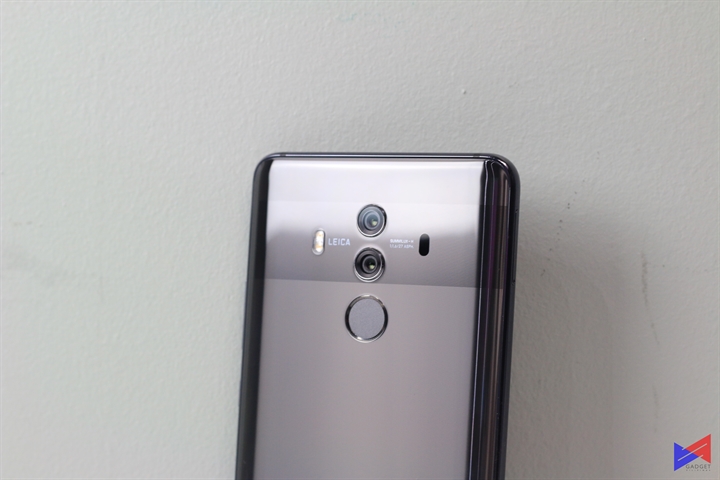
Mate 10 Pro’s overall design is devoid of similarity to the Mate 10. It is much easier to hold as it’s taller and slimmer, but it’s slippery and too delicate. Almost everything about it is made of glass, and such design is a like a doubled edged sword. It looks amazing but it requires a huge amount of effort to keep it from hitting any solid object. Thankfully, Huawei included a jelly case inside the box, but I suggest looking for a better alternative.
Apart from the build, there are other notable differences when you compare this with Mate 10. Its home button with the fingerprint sensor is at the back of the phone, just below the dual Leica monochromatic and chromatic lenses. I’ve grown to love this setup than the one on Mate 10 as it feels a more natural location for me. My issue here though is I will always have to lift it up when I need to unlock the phone when it’s facing up. Sadly, inasmuch as the phone has all the AI bells and whistles, it does not have other types of security locks like face and voice unlock features.
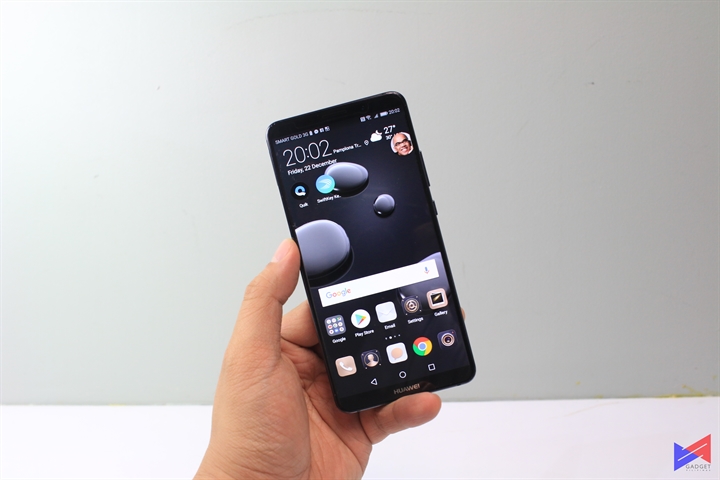 A Productivity Powerhouse
A Productivity Powerhouse
Whatever you can find on Mate 10 is actually in this variant. One disadvantage of this one though is the lack of storage expandability, which to a lot of people – including myself – is as important as having a powerful and intelligent mobile processor.
Despite this forgivable setback, Mate 10 Pro is a productivity powerhouse. As a businessman myself, I consider this as the ultimate productivity partner – even better than the Samsung Galaxy Note 8 by my standards. With all the available all-in-one features, you are basically carrying a pocket-sized personal computer.
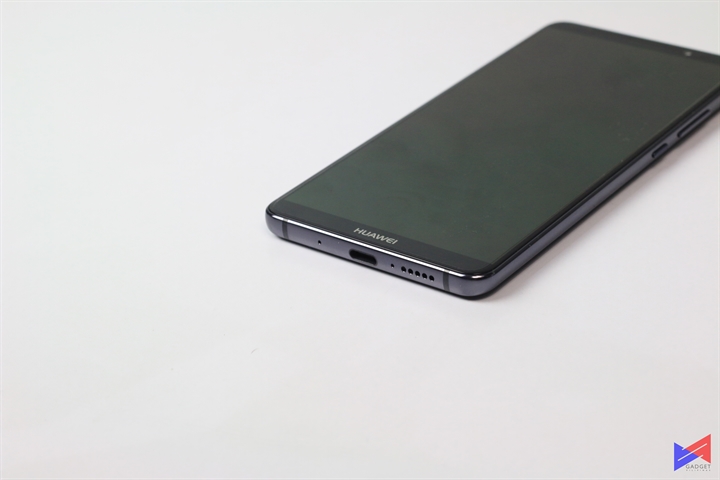 My personal favorite is the phone’s ability to be turned into a full-fledged PC without the use of any docks. This is an amazing feature, which I definitely appreciate as I only need to bring a Type C to HDMI connector during my meetings and presentations. Controls can be a little tricky, but the fact that you can switch your phone’s screen to a mouse make things more convenient.
My personal favorite is the phone’s ability to be turned into a full-fledged PC without the use of any docks. This is an amazing feature, which I definitely appreciate as I only need to bring a Type C to HDMI connector during my meetings and presentations. Controls can be a little tricky, but the fact that you can switch your phone’s screen to a mouse make things more convenient.
Here’s a quick demo of how this works. In order to do this, I used the following methods: (1) hooked the Huawei Mate 10 Pro to a Type C to HDMI dongle; (2) connected the dongle to my Elgato HD60 capture device; (3) connected my Elgato HD60 to my PC; (4) used Xsplit to record or stream. Otherwise, you can just simply connect it to a projector via a Type C to HDMI adapter. Unfortunately, Huawei didn’t include the latter accessory so you will have to buy one at Lazada.
Calling cards and documents may also be scanned and saved to your contact list and gallery, which can really be very useful for entrepreneurs and businessmen. Scanning calling cards is as easy as going to the contact list, and tapping ‘Scan’. It encodes everything to you, and you all need to do is to save it. Document scanning feature, on the other hand, is already included in the camera.
And it doesn’t end there. Huawei Mate 10 Pro has hidden productivity features that delighted me to the core. Familiar features such as IR remote, smart screenshot and reverse charging make things make life easier. Nifty new ones that are powered by its AI’s chip – AI Voice Recognition and AI Translator – add a new dimension of convenience to the overall mobile experience.
18:9 hype!
As its 2nd device to have an 18:9 display (at least for Huawei smartphones officially offered in the Philipines), it is a little challenging for us to rate it better than Samsung Galaxy Note 8’s far superior Super AMOLED display. When it comes to resolution and pixel density, Mate 10 Pro’s display is can be a good competition to Note 8, albeit inferior in terms of number.
With Mate 10 Pro, screen real estate is wider (but not exactly bigger). At the end of the day, the reason for jumping to 18:9 is to give consumers a broader experience without sacrificing handling comfortability.

Performance
At this point, let’s zero into its performance.
Huawei Mate 10 Pro Specifications
- 2.4GHz Hi-Silicon Kirin 970 Octa-Core Processor
- 6GB of RAM, 128GB of storage expandable via microSD card (up to 256GB)
- 6.0-inch 18:9 1080 x 2160 pixels HDR Display
- Dual 12MP (RGB) + 20MP (Mono) Rear Cameras, f/1.6, Leica Summilux-H, OIS, PDAF, 2x Lossless Zoom, Laser AF
- 8MP Front Camera, f/2.0
- Fingerprint Sensor
- NFC
- IP67 Certification
- USB Type-C Interface
- 4,000mAh battery with SuperCharge Technology
- EMUI 8.0 on top of Android 8.0 Oreo
- Colors: Midnight Blue, Titanium Gray, Mocha Brown, Pink Gold
Similar to what we did for our previous reviews, you deserve quantifiable data, and this is the reason why I’m presenting benchmark results. For the non-geeks, the Huawei Mate 10 Pro is a smartphone marvel. Overall performance is not exactly faster than Mate 10 Pro, but it’s one of the impressive ones we recently reviewed.
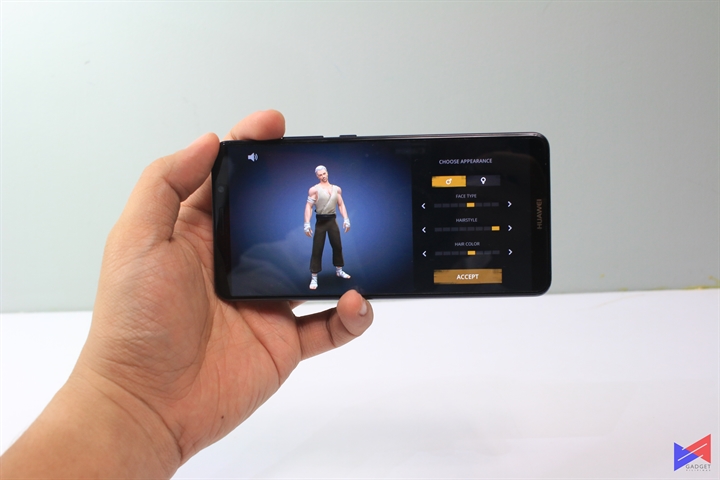 I was able to play the following games at highest/maximum settings in topnotch performance:
I was able to play the following games at highest/maximum settings in topnotch performance:
- Shadow Fight 3
- The Sun: Origin
- Rules of Survival
For the geeks, you need the following data presented below for further reference. Enjoy.
HUAWEI MATE 10 PRO BENCHMARK RESULTS
- Antutu Benchmark: 174,165
- 3D: 64,882
- UX: 60,356
- CPU: 37,419
- RAM: 11,508
- Quadrant: 39,849
- Geekbench 4
- Singe-Core Result: 1,919
- Multi-Core Score: 6,672
- GFXBench GL Benchmark
I want to emphasize that while most of our readers are familiar with Antutu and Quadrant, I want to put special emphasis on GFXBench GL Benchmark as it shows results that may very well quantify the capabilities of this smartphone. Quite obviously, based on its specifications, Huawei Mate 10 is a powerful device and perfect for many functions: productivity, content and media creation, and gaming. Huawei made sure that you’re going to have fun with this device to play your games and use your applications.
- High-Level Tests: For this tier test, the benchmark app subjects it to on-screen and offscreen graphics tests. The renderer is presented with various surface width and weigh, and pushes it to its limit. Graphics presented often resemble game-like renders. FPS is presented per each grade of test. The higher the score, the better.
- Score: 1,192 Frames (vs 1,301 frames of Huawei Mate 10)
- Low-Level Tests: This tier test, the app subjects the phone to on-screen and offscreen graphics tests. Tesselation and texturing are the focuses of the test, and the result is presented in terms of frames.
- Score: 1,546 Frames (vs 1,579 frames of Huawei Mate 10)
- High-Level Tests: For this tier test, the benchmark app subjects it to on-screen and offscreen graphics tests. The renderer is presented with various surface width and weigh, and pushes it to its limit. Graphics presented often resemble game-like renders. FPS is presented per each grade of test. The higher the score, the better.
- BaseMark X Gaming Performance Score
- 32,779
- NenaMark 2
- Score: 60.9
- PCMark for Android Benchmark
PCMark offers a detailed result of the phone’s overall capacity to cope up with the demands of the user. It provides the best and complete benchmark result among other apps, albeit lacking detailed results for graphics capability.
- Work 2.0 Performance: 7,040 (vs 8,263 of Huawei Mate 10)
- 3DMark for Android: 29,36
Camera Performance
When it comes to Mate 10 Pro’s cameras, the photos we took don’t differ much compared to Mate 10’s outputs. The marriage of impressive AI performance and Leica’s superior Summilux lens put this phone on the top of our list. Here are sample photos and videos for your reference:
Rear Facing Camera
Front Facing Camera
Sample Videos
Verdict
Huawei proved that they can work wonders. Huawei Mate 10 Pro, much like the Mate 10, is not an exception. Imbued with it are unique qualities that one can hardly find in other smartphones: Leica lens, superior AI performance and a design that does not fail to impress.
The phone, however, is a tad pricier by PhP6,000 compared to Mate 10. With that price, you’re basically paying for more RAM, wider screen size, water resistance and sleeker design. It could have been much cheaper than PhP38,990 though. It would have been much better had they priced this at PhP34,990, and let users pick their preferred variant. Based on my review, Huawei Mate 10 Pro is not faster than Mate 10. It isn’t even more intelligent since both devices sport the same CPU and NPU.
Founded in 2009 by Gian Viterbo, Gadget Pilipinas is one of Philippines’ top sources for news, tutorials, reviews and tips about the latest trends in technology, gadgets, games, social and digital media and cyber culture.








